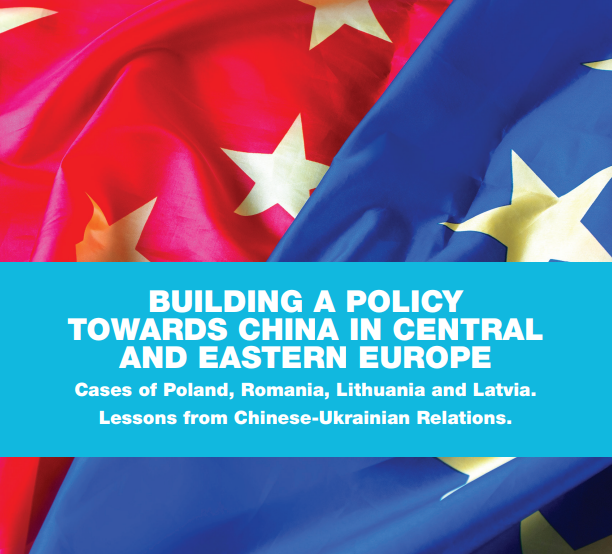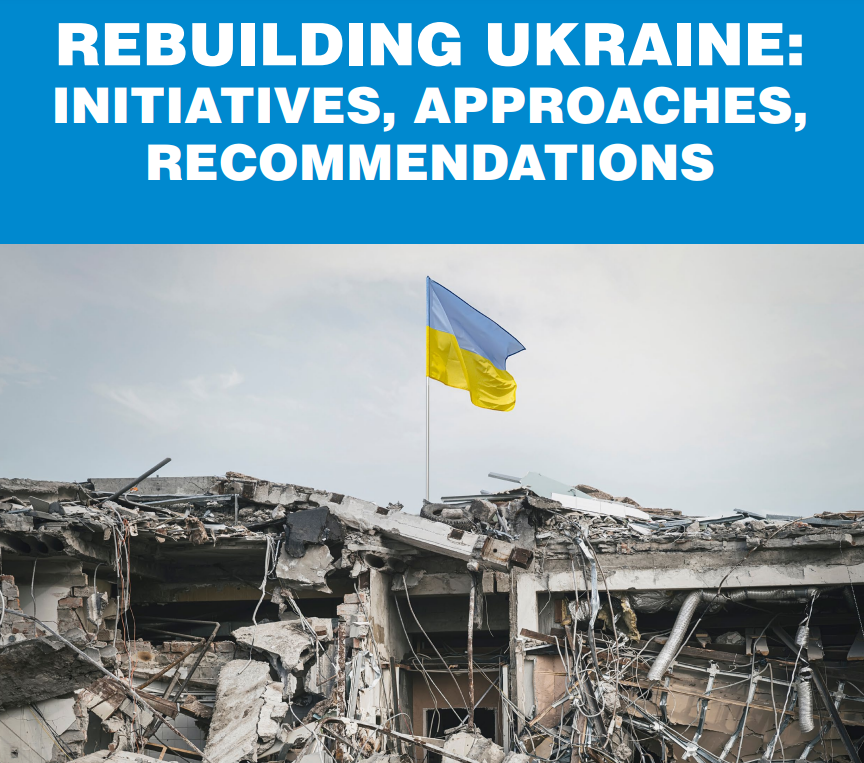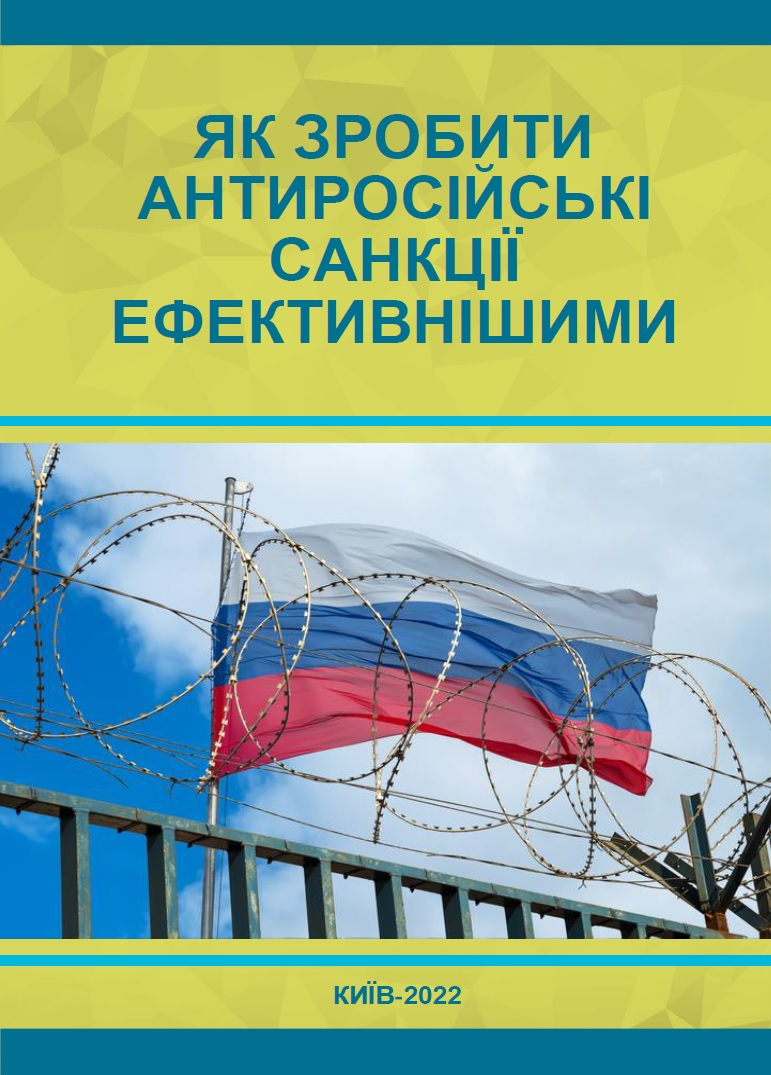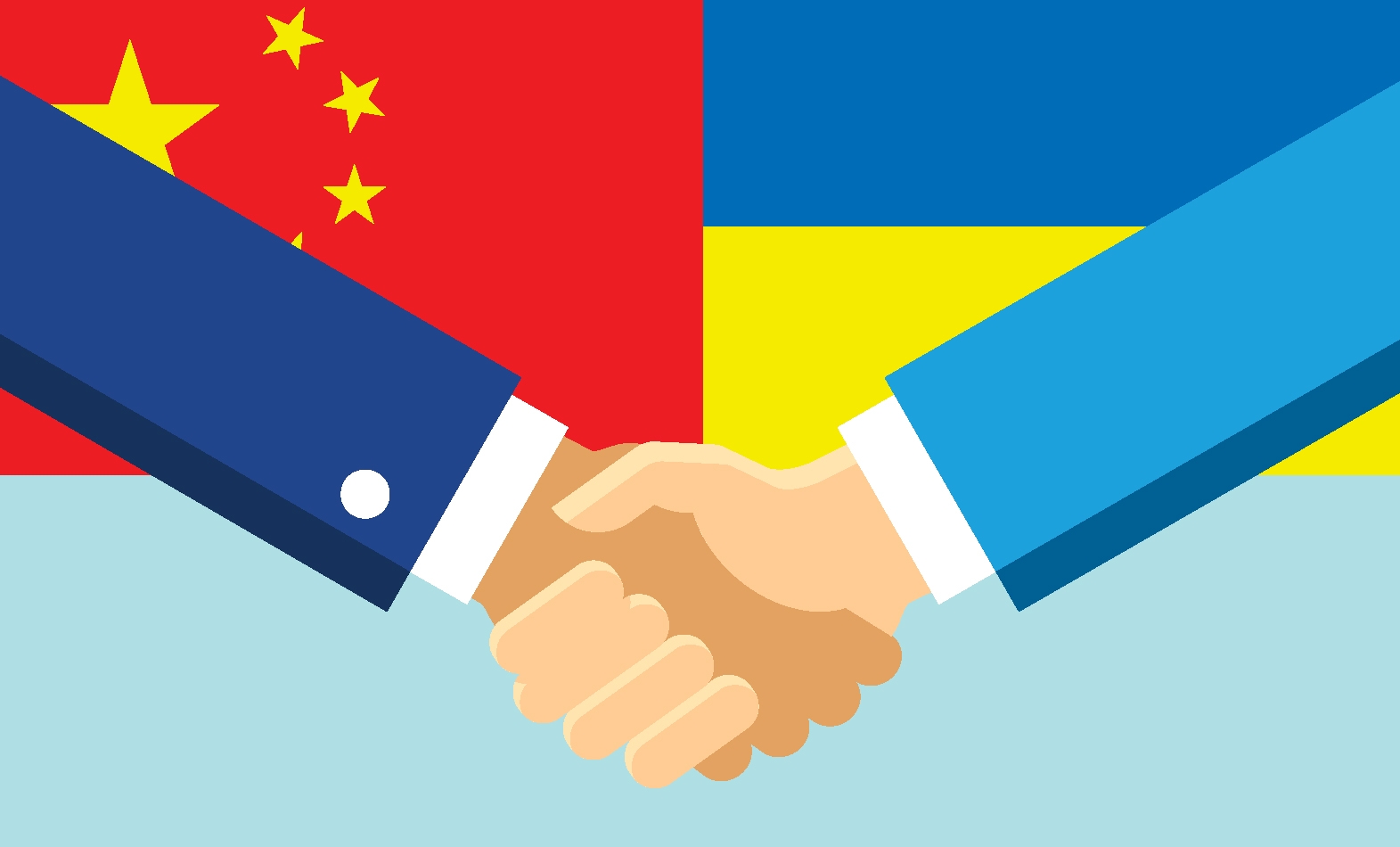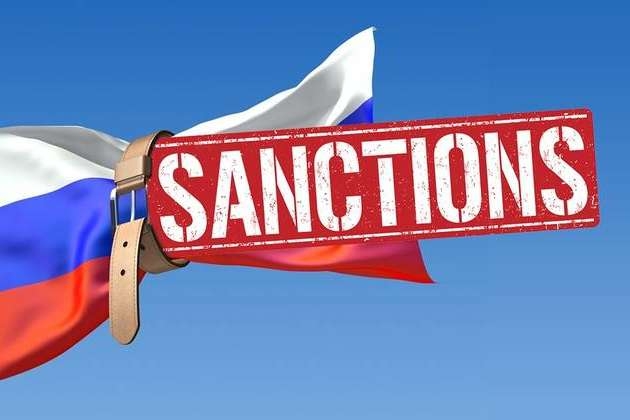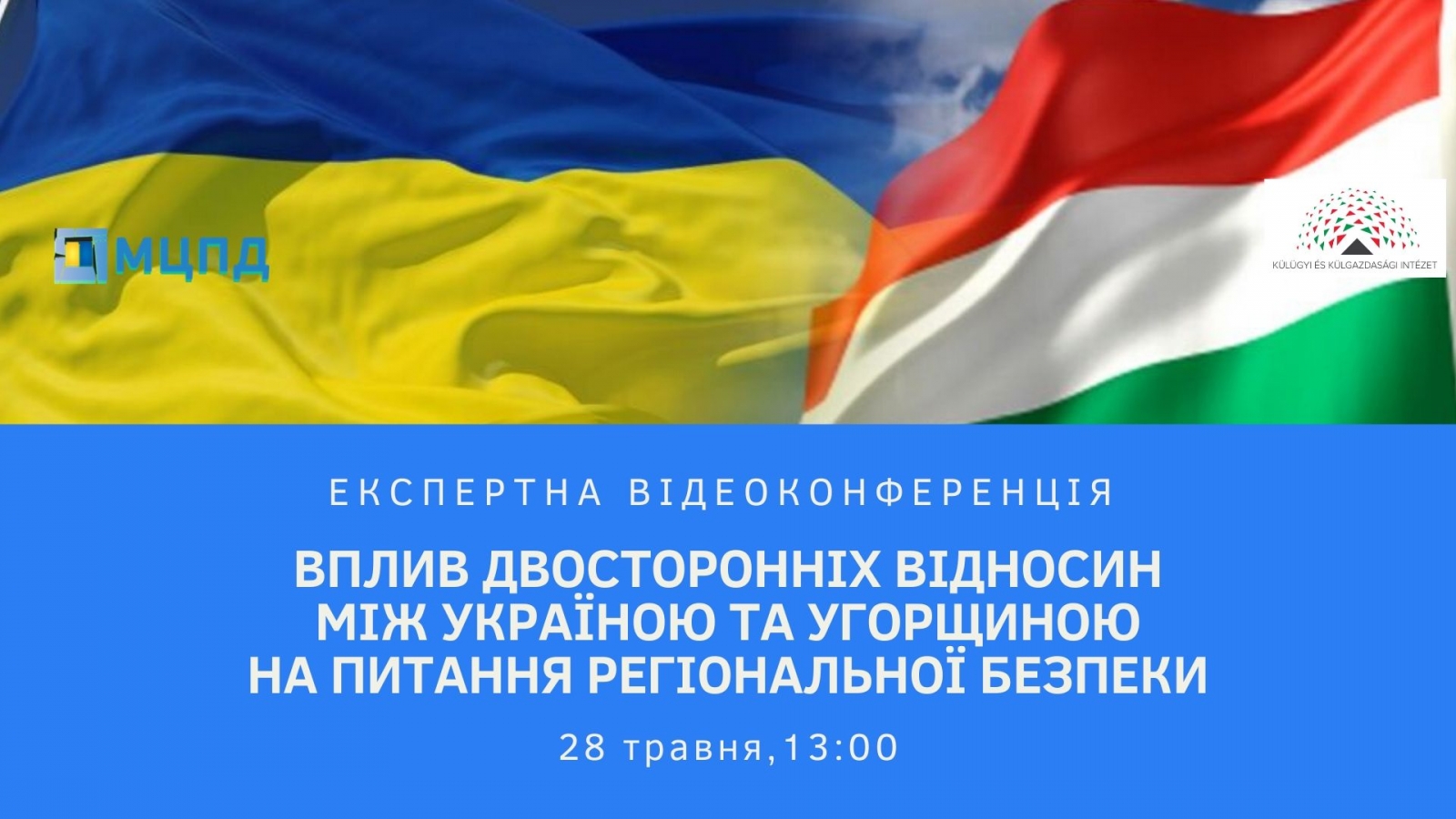The unity of the West has always been a kind of an axiom for Ukrainian foreign policy. The West is associated with democracy, prosperity, stability and, among other things, unity, based on common values, history and strategic interests.
Such a West requires Ukraine as a guide, a field of gravity and a counterbalance to Russian influence. Integration or even cooperation with such a West today - when non-alignment and multipolarity are discredited, and Russia has become a systemic threat - looks like a foreign policy paradigm without serious competitors. It is within its framework that the talks and declarations of accession to NATO and the EU, which largely replaced the complex foreign policy planning, fall into place.
Under such conditions, the least that Ukrainians would like is a violation of the unity of the West. It generates a number of unpleasant questions, from the capabilities of NATO to maintenance of an anti-Russian sanctions regime. In the long run, the probability of facing one of the largest difficulties which is the choice between those who we consider allies is increasing. If the strategic interests of the United States and the European Union are dispersed, then, of course, not only Ukraine will feel the consequences. A strategic alliance between the two poles of the modern world remains a guarantee of global stability and security, or at least that they have been left behind.
In this context, events of recent months gain added value. The sharp difference between the positions of the United States and major European powers over the agreement on Iran's nuclear program, the US's decision to relocate the Embassy to Jerusalem, and the real prospects of a US-EU trade war make us recall the last-year events and declarations. Donald Trump gave a lecture to NATO's European allies on how they should consider security; and Angela Merkel responded by saying that the times when Europe and the United States could rely on each other went by.
This march, Donald Trump announced the imposition of a duty on imports of steel and aluminum, postponing the entry into force of this EU decision by June 1. Such a step could be the beginning of a conflict between the two largest economies in the world, trade between which reached a mark of 1.1 trillion dollars. Interdependence among them is even better illustrated by the impressive volumes of total sales of American companies affiliated to Europe and European companies affiliated to those of the US, reaching 5.5 trillion dollars.
If the decision on the imposition of American duties will come into force, and Europeans will respond symmetrically - we are talking about the imposition of mirror-image duties on American goods, so far on clothes, orange juice, motorcycles, but the list can be expanded - the effect will be even stronger than the one, which was accompanied by the collapse of the Transatlantic Trade and Investment Partnership project (TTIP). Of course, this effect will be negative for a strategic partnership between the United States and Europe. But will it affect political cooperation?
To this end, it is worth adding exceptionally deep differences in the views on the issue of international security. Europeans have responded critically to the transfer of the American embassy to Jerusalem - a step that, in the opinion of many, violates the balance and prospects of the Middle East conflict settlement. The situation with a nuclear deal with Iran deeply criticized by Trump, which has not, however, stroke a chord among European partners, is even more potentially dangerous. As a result, the United States came out of a multilateral agreement, providing Iran with an opportunity to set uneasy conditions for Europeans if they want to keep it in place. In some way what has happened can be seen as a shifting the problem from the US to the EU. This is rather risky not only concerning the Middle East, but also in the non-proliferation regime.
Differences in the views and attitudes of Europeans and Americans seem to become commonplace. To what extent can they cross the line?
For Ukraine, this issue is of practical importance in view of at least two factors - the effectiveness of NATO and support for the anti-Russian sanctions regime. They are the basis of a non-alternative foreign policy strategy of recent years. The good news is that NATO will remain as effective as it has been, even in the wake of the deteriorating global climate of transatlantic relations. Saving a uniting front of anti-Russian sanctions will be harder. But - and here the news is not so good - a simple strategy "trying to be friends with the West against Russia" will work worse.
Despite the deepening of the contradictions in certain spheres, the transatlantic alliance holds together strategic interests. The balance of power in the world is changing rapidly: in the 15-20 years, China and India will play a leading role, and the EU will try to keep its place in the club of great powers. Historical and normative unity makes the United States and Europe almost natural allies, and a long period of peaceful and constructive cooperation gives reason to trust each other. NATO, as an embodiment of this trust, is also beneficial to all, as it creates a sufficient deterrent potential. For Europe, NATO is the best way to strengthen its own security. The US, no matter how much talk about the burden of spending on the common good, also gets from NATO more than it spends on it. Pragmatic interests will ensure the continued functioning of both NATO and other key institutions of the West. Truth be told, this does not mean that Ukraine will easily join them.
The future of the anti-Russian sanctions regime looks vaguer. Intensifying disputes between Europe and the United States will lead to a revision of priorities and a temptation to turn positions on sanctions into a subject for trading on other issues. Europe is likely to suffer more from the imposition of trade duties, and the US position on sanctions looks more coherent and consistent. Against the backdrop of worsening relations and economic losses in Europe, demand for rhetoric about weakening or abolishing sanctions imposed on Russia may well increase. The danger of a tariff war between the United States and the EU for Ukraine is precisely the fact that, struggling for the economic interests of Europeans, it will strengthen the positions of those who want to compensate loss by deeper cooperation with Russia.
The civilization split in the West or the destruction of its key institutions will not happen: even the Kremlin is unlikely to dream about that. However, concerning temporary exacerbation of contradictions and contradictory positions on important issues for Ukraine it is quite possible. In these circumstances, we will probably need a more subtle approach to the western vector of our foreign policy.
ICPS experts researched the question of building a policy towards China in Central and Eastern Europe
ICPS has prepared an analytical study focused on the evolution of China's regional policy in Central and Eastern Europe, as well as recommendations for developing policies towards China in the region. The "One Belt, One Road" initiative has become a key tool for promoting China's geopolitical interests and implementing its grand strategy aimed at changing the existing international order. This global initiative encompasses transportation, logistics, trade, and investment projects, promoting China's transition to a new level of influence and responsibility. Europe plays an important role in this. The European market is a natural "center of gravity" for China's export-oriented economy; Beijing seeks to build strong cooperation with Europe based on active trade and interdependence. China, in its turn, is also an important trading and economic partner for Europe. Central and Eastern European countries (CEE) have in some sense become "gateway" to Europe for China. Seeking to deepen relations with them and involve in its own infrastructure projects, China has developed and implemented a regional policy within the framework of the "14+1" initiative (previously "16+1" and "17+1"), as well as on a bilateral level. This Chinese activity has elicited ambiguous reactions both among participating states and among other EU members. Russia's invasion of Ukraine has brought new problems to the agenda and significantly weakened China's position in Europe, particularly in the CEE. Political and security issues have taken priority over trade and infrastructure. The ongoing war has forced both China and countries of the region to adjust their perceptions and policies towards each other. The most vivid trends and problematic issues are examined in the paper utilizing the experience of Poland, Romania, Lithuania, and Latvia. Taking also into account Ukraine's experience in building relations with China, recommendations are provided for the main elements of CEE's policies towards China. More information can be found at the following link: https://icps.com.ua/en/our-projects/publications/building-a-policy-towards-china-in-central-and-eastern-europe/
What are the main problems of reconstruction plans for Ukraine and what are the ways to solve them: experts provided recommendations
International Centre for Policy Studies has presented the document "REBUILDING UKRAINE: INITIATIVES, APPROACHES, RECOMMENDATIONS", which analyzed different aspects of the future reconstruction process for Ukraine. According to various estimates Ukraine's total losses resulting from Russian aggression at the end of 2022 constituted around 700 billion US dollars. This amount has been increasing every day of Russian attacks and bombardments targeting civilian infrastructure and killing innocent people. The international community recognizes the need to finance reconstruction of Ukraine. There have been many international conferences, expert studies and discussions on that. However, there is currently no consensus on sources or tools for Ukraine's rebuilding projects, no agreed overall concept of how the process will be conducted and implemented. Meanwhile, needs of Ukraine for reconstruction are urgent and vital to keep country viable and able to withstand Russian continuing aggression. This necessitates an in-depth study of the issue as well as public and expert discussions to suggest appropriate decisions. In this paper the International Center of Policy Studies examines existing international experience of post-war reconstruction with a special attention to good examples, which can be used by Ukraine. Existing initiatives regarding the reconstruction of Ukraine are analyzed with a focus on new ideas and recommendations, which can be used in this process. The study intends to contribute to current expert discussions in Ukraine and among our partners on reconstruction of the country during and after the war. You can read/download the ICPS publication "REBUILDING UKRAINE: INITIATIVES, APPROACHES, RECOMMENDATIONS " by following the link: https://icps.com.ua/en/our-projects/publications/rebuilding-ukraine-initiatives-approaches-recommendations/
How to make sanctions more effective: ICPS analysts offered new ideas
International Centre for Policy Studies has presented the document "How to make anti-Russian sanctions more effective", which analyzed the gaps in the sanctions policy. It is noted that the international community has adopted seven packages of sanctions against Russia since its full-scale invasion of Ukraine in 2022. Over 50 countries have in some form joined the sanctions regime. Some states, such as Israel and China, don't adopt sanctions but block potential ways for Russia to evade their effect. Mainly, it is the developing countries that don't implement the sanctions regime, while the collective West is decisive and united in its exploit of the tool. Akin to 2014 and after, sanctions constitute a complex mechanism of selective action. They are not absolute but rather operate in different sectors and against particular individuals or legal entities. In addition to sectoral sanctions, diplomatic and visa restrictions are in place. At the same time, to make the sanctions more effective, the international community should fill the gaps that allow for a selective designation of Russian oligarchs and politicians. It requires a systemic analysis and monitoring aimed at finding these gaps, then sanctioning the individuals who had avoided personal sanctions. Accordingly, this document contains not only an analysis of the sanctions policy, but also recommendations for minimizing its gaps. You can read/download the ICPS publication "How to make anti-Russian sanctions more effective" by following the link: https://icps.com.ua/en/our-projects/publications/how-to-make-anti-russian-sanctions-more-effective/
SINO-UKRAINIAN RELATIONS: RESEARCH PAPER
In context of the ICPS' latest project on monitoring foreign economic relations, ICPS experts have conducted extensive research, round table debates and in-depth analysis of the current status of Sino-Ukrainian relations. China's political interest and economic investments in Ukraine has risen exponentially since the announcement of the One Belt One Road Initiative, yet is Ukraine ready for intensifying bilateral relations with such a world power? For more details, read the ICPS' latest study.
Austrian experts and diplomats discussed ICPS study “Sanctions against Russia”
Sanctions must remain a key instrument of pressure on Russia to restore Ukraine's sovereignty and territorial integrity. This conclusion was reached by Ukrainian and Austrian foreign policy experts during expert discussion of the ICPS study “Sanctions against Russia: current state, prospects, successes and gaps of the multilateral international sanctions regime against Russian Federation”, which took place on Tuesday, June 3, in the format of online discussion. About 40 Austrian and Ukrainian diplomats, analysts and foreign policy experts took part in online discussion “Sanctions against Russia: are they still effective?”, organized by ICPS in conjunction with the International Institute for Peace (IIP, Vienna) with the support of the International Renaissance Foundation. The speakers were Hannes Swoboda, President of the International Institute for Peace (IIP), Peter Havlik, expert at the Vienna Institute for International Economic Studies, Anastasia Galushka, ICPS expert in international law and human rights and Mykola Kapitonenko, ICPS associate expert. The participants of discussion stressed the need to continue sanctions against Russia, as Russia's actions in Ukraine are a challenge not only for our country, but for the entire international community which is why they must receive a joint coordinated response. “Sanctions, as a tool “between wars and words”, remain the only way to put pressure on Russia's foreign policy while limiting its destructive potential for international security,” ICPS expert in international law and human rights Anastasia Galushka said. According to Mykola Kapitonenko, combination of different types of sanctions will allow for a more systemic impact on Russian policy; while the procedure of their periodic extension will signal the dependence of sanctions pressure on specific changes in the behavior of the Russian Federation. It should be noted that earlier ICPS experts presented the study “Sanctions against Russia” in the United States, Estonia, Belgium, Italy and Poland. You could download and read ICPS study “Sanctions against Russia” via the link: https://cutt.ly/orQ0PGd
ICPS conducted a video conference on bilateral relations between Ukraine and Hungary
On Thursday, May 28, the International Centre for Policy Studies (ICPS) and the Institute for Foreign Affairs and Trade (Hungary) initiated an expert video conference on “Impact of Bilateral Relations between Ukraine and Hungary on Regional Security”. The online event was part of the project “Ukraine-Hungary: Towards Understanding” with the support of the Institute for Foreign Affairs and Trade. During the video conference, the participants discussed the state and prospects of relations between Ukraine and Hungary in the context of regional security, Hungary's role in Ukraine-NATO relations, the impact of the Russian conflict on Ukrainian-Hungarian relations and regional security. The event was attended by several dozen experts, including Christina Murphy, Deputy Head of Mission, Hungarian Embassy in Ukraine, Georgy Ilyash, research fellow at the Institute for Foreign Affairs and Trade (Hungary), Mykola Kapitonenko, ICPS Expert on Foreign Policy, Dmytro Tuzhansky, political scientist, expert on Ukrainian-Hungarian relations, Anastasia Galushka, ICPS expert on foreign policy and international law. “Relations between Hungary and Ukraine still remain in a well-known deadlock,” Mykola Kapitonenko said. - Minor shifts in recent months, firstly, do not fully meet the expectations that arose after the victory of Volodymyr Zelensky in the presidential election, and, secondly, according to Budapest, do not solve the key problem of narrowing the rights Hungarians in Ukraine”. According to him, the rapid development of events in the region pushes our countries to cooperation. Against the backdrop of the coronavirus pandemic, a bilateral agreement on health cooperation was signed, a corridor was set up in Hungary for Ukrainians to return home, and new formats of governmental remote communication were tested. “The usual agenda, dominated by the Russian threat, retaliation by NATO and the lack of democracy, is giving way to the challenges of pandemic,” Mykola Kapitonenko said. - In addition to those directly related to human health, these are problems that have already been or will be caused by the economic recession and the growing demand for security among citizens. Together, they change the way states communicate and perceive each other. Borders and various barriers are being partially restored, selfishness is growing, and political decisions are returning to the usual national level.” Anastasia Galushka drew attention to the controversial law on education which provoked numerous discussions at the political and professional levels. “It can hardly be argued that citizens living in Ukraine should know the state language of the country, and that this law can only be seen as an advantage for members of national minorities,” ICPS expert said. “However, implement the law in practice was much harder than expected.” According to her, the Venice Commission also addressed this issue and formulated some principles, stating that knowledge of the official language of the state is a factor of social cohesion and integration, and it is legitimate for states to promote their language and call for the state language to be the language of education for all. “Ukraine and Hungary are part of a single region, establishing cooperation and maintaining a common consensus could significantly expand the capabilities of both countries,” Anastasia Galushka added. - This would control the level of escalation of the conflict. The regional context can open new horizons for both states, take them out of the circular discussion and focus only on current problems. A full-fledged strategic partnership is still a long way off, but at least the current crisis can be overcome.”


